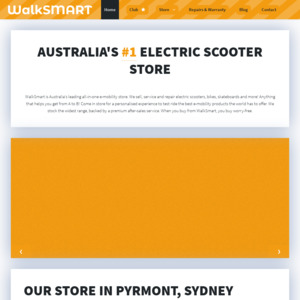Hello Ozbargainers;
I have been on Ozbargain for a few years now, and I am always impressed by the quality of discussions on this forum.
This topic has been a big deal for me, and has been on my mind for a while now.
As a business owner of an online e-commerce store, I have ran into an issue of "credit card chargebacks", and lost a bit of money from this.
To explain what a credit card chargeback is (to the best of my knowledge):
It is when someone calls up their bank and reports an unauthorised charge on their account. I think it is possible for people to do it even if they did genuinely make the transaction, but instead had an issue with their ordered item e.g. received broken.
The bank will then go through some sort of checking process (not sure), and once this is complete, the customer may receive all the money bank. And (the seller) will be forced to refund the money, even though the item was already sent and received.
What has happened to us?
As a ecommerce business, we sell products online. Roughly about 1 in 1000 orders we receive an email from PayPal saying:
“"One of your buyers filed a chargeback with their credit card provider. The buyer stated that they didn't authorise this purchase."
This usually occurs about 1+ months after we have dispatched the customers order.
We have probably received about 5-10 credit card disputes over the last few years, and from the best of my memory all of them had the reasoning “unauthorised transaction”
It occurs both on eBay and our website.
There are certain traits with the sale that link to these disputes, for example:
- If purchased on eBay, it is someone with a very low feedback score e.g. <5
- If paid with PayPal - an account is not used, only credit card.
- In PayPal, the transaction is not verified.
- The order amount is large
- Item being sent to a Parcel Locker or PO box.
- Sometimes (but not always) non-Au IP address
Now, I know what you will say: “why not just block or not accept orders if the order payment looks suspicious?”
Well, we have tried to do this in the past, but there are issues:
1. It is an inconvenient / inefficient to check every order.
2. The majority of orders that will be flagged as “possibly fraudulent”, will in fact not be. And we annoy customers when we block orders.
We also sometimes ask the customer to verify a code that will appear on their bank statement once the charge has been completed in PayPal. But we have been slack in doing this recently. And customers hate it.
What I think may be happening:
Scenario 1: A scammer is using a fake or stolen credit card to order something from our us, and sending the item either to their house, or a friends house.
Scenario 2: A scammer is using a fake or stolen credit card to order something from our us, and reselling the item online, then sending it to their own customers house.
Scenario 3: A scammer is using their own credit card to send the item to their house, or their friends house, then calling up their bank and saying the transaction was “unauthorised”
Some other relevant notes:
- We get the address and contact details of the receiver (obviously as we have to send the items to them).
- There was one scenario where I called the lady up, she was a Chinese woman (I had to speak Chinese to her as she did not speak English) and hung up straight away when I mentioned the situation. This particular item was sent to a Parcel Locker. Note also, I got her phone number from Australia post as the one with the order was incorrect.
- I have tried sending a friendly letter to the receiver of the order with no response.
- We once ran an OzBargain promotion and someone scammed us from an order linked from OzBargain.
- I have heard from other people that this is a natural occurrence in large businesses and they just “cop it”. However, Kogan have an advanced system where they require new customers to verify their bank account prior to making a purchase.
- All up, our business has lost between 5k-10k from this
If anyone has experience or information in this area, I would greatly appreciate your input. I am sure there are other people in this community who would be interested too.
What do you guys think is happening?
What you guys think I should do, or be doing?
Do any of you experience the same problem?
***I know this post is long, let me know if anything needs more explaining, or clarification?
